Games I Beat - 2023
It’s that time again. The time of year where I talk about all the stuff I beat and what I think about ‘em.
Now, in the order I beat them:
LEGO Builder’s Journey (2019) [PC]
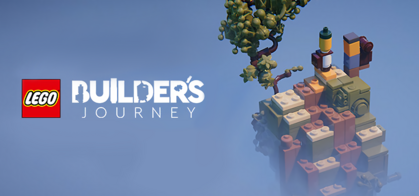
There are a lot of LEGO games out there. I haven’t played a ton of them, but it seems like very few of them actually care about the act of building and playing in a way that matches how people do so with the physical object. Builder’s Journey, however, is all about that. It’s specifically about clicking bricks together, dragging them around to knock down other bricks, and building puzzle solutions inside small LEGO vignettes. As it happens, most of the puzzles involve guiding two characters, each only single blocks stacked into a column, on a wordless adventure. The animation and sounds are all a delight, and it’s neat to see a LEGO game without any minifigs, and especially one that cares so deeply about the physicality of playing with building blocks.
Because of the story element and the ability to “cheese” puzzles and solve them in ways that feel a bit like breaking the rules, I imagine there’s a lot of influence from the Portal games here.
Boneworks (2019) [PC]
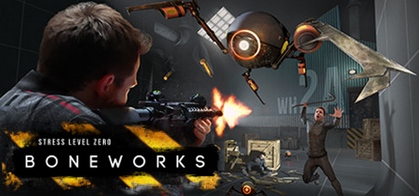
When I first picked up a VR headset in 2020, Half-Life: Alyx and Boneworks were the games that looked and felt like full, real games instead of tech demos. While Boneworks lacks some of Alyx’s polish, it revels in a highly-detailed physics engine including a full simulation of the player avatar’s body. In practice, this means you can be pushed around, climb up surfaces, or walk to a wall and push against it to move your perspective away from it. The full-body physics takes a lot of getting used to, but it opens up some interesting gameplay situations and feels genuinely unique when most VR games go out of their way to avoid this sort of thing. In addition to the impressive technical features, the game includes an ARG-like story about an alternate reality that built VR using a mysterious and dangerous substance. The gameplay is fairly standard shooter fare most of the time, but the sections that exclusively use melee weapons or some of the wackier physics-y gadgets are where the game shines. This year, I actually restarted the game since I had fallen off it before due – the full-body physics may be cool, but it’s tough to get used to.
Bonelab (2022) [PC]
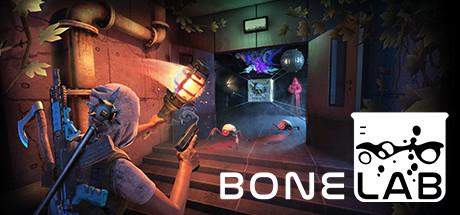
The reason why I replayed Boneworks was because its semi-sequel was due to come out soon. Bonelab is an interesting thing, billed as a modding platform for the tech from Boneworks, but featuring its own, smaller story to play through. The story here is pretty neat, but feels less connected than its predecessor. The main draw of this one, aside from its modding features, is the avatar-switching features. Each avatar you use in the game has its own strengths and weaknesses based on the physical attributes of its model. You could play a slim and super quick ninja, an enormous armored warrior with a sumo-wrestler build, or a number of the others available in the story. In the end, this one definitely felt more “tech demo” than Boneworks. This is in part due to being substantially shorter than Boneworks, but I also feel like they could have explored the avatar-swapping concept in more detail and really pushed it to its limits. There are a ton of mod avatars that stretch the limits of the engine, and I have a lot of fun playing around with ones that have extreme proportions (shout out to the giant mech avatars, those are especially cool).
Even with available mods, Bonelab still feels pretty empty. Modders can only do so much, and they’re constrained by the lack of a promised SDK. (still missing as of December 2023) Additionally, while Boneworks received a number of post-launch free updates, the dev team has been pretty quiet for Bonelab. Unmet expectations and a short campaign has me left wanting for more.
Alien: Isolation (2014) [PC]

There’s a special place in my heart for the first Alien movie, and hearing that there was a game with a similar tone to it had me thrilled. The only issue is that I’m a total wimp when it comes to horror games. Something about being in control and having to continuously interact with the terror to experience everything makes it extremely potent. Alien Isolation was no different… at the beginning, at least. I love the Alien’s behavior in this game, and the fact that it is invulnerable is refreshingly true to the “rules” of the first movie. Eventually, I got tired of running around and trying to dodge the Alien, but that was my fault. I accidentally set the difficulty on hard instead of my usual normal. After turning the difficulty down, I really enjoyed my time. I enjoyed skulking around the station and playing through it. Unfortunately, the story was all pretty forgettable. However, the art design and visuals are terrific – emblematic of the strengths of a strong retro-tech art style.
Wonder Boy: The Dragon’s Trap (2017) [PC]
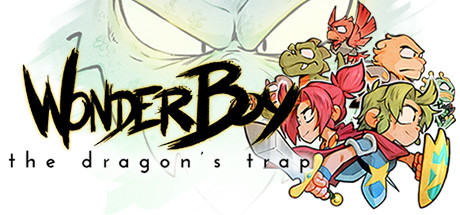
What an absolute joy this game is! It’s a remaster of a Sega Master System game that has aged remarkably well, hence why there were so few mechanical changes made. The original game is feels like it’s from the time where home consoles were working to break away from arcade design, often by integrating a bit of RPG-style progression. In spite of the few RPG-like progression mechanics, this game focuses primarily on exploration and platforming. Overall, it’s a tough game, but holds up incredibly well. The gorgeous art, animation, and music of the remaster make it all a pure joy to play. It even has a feature I adore in remasters like this – the ability to switch between classic and new art styles without missing a beat. Overall a great package that I strongly recommend.
Severed Steel (2021) [PC]
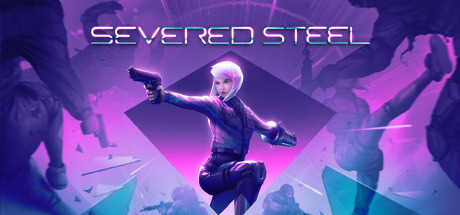
There’s been an uptick in fast-paced shooters with a ton of movement options lately, and I am totally here for it. This game is one such shooter, and it’s terrific. The movement and time-slowing abilities make for a game where it’s easy to feel like an action movie hero. Plus, Severed Steel has a neat voxel engine that enables level destruction in a really cool way. Combine that with an added rogue-lite mode, modding support, and a killer soundtrack and you’ve got a game I keep coming back to.
Quadrilateral Cowboy (2016) [PC]
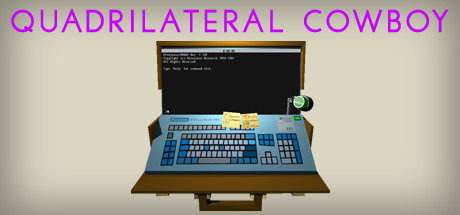
Blendo Games’ titles always stood out to me with their excellent visual style. This game continues that trend with a sort of puzzle / hacker theme built around an honest-to-goodness computer terminal. While I’m hardly an expert at terminal use, I enjoy the options it enables, and the challenges it enables too. This game makes use of both aspects of computer terminal use in conjunction with a variety of hacker gadgets. It’s funny to see just how many games after this now also have or use an in-game terminal for some aspects.
InFamous: Second Son (2014) [PS4]

I got this for fairly cheap since it was a PS4 launch title (…nearly ten years ago. Time flies, huh?). This was my first Infamous game, and I think the first game I’ve played developed by Sucker Punch. It’s honestly just kind of… fine. The story was fairly forgettable, the powers were cool to look at but nothing exciting. It was good enough that I wanted to play through to the end, but I can’t say anything about it really stood out.
Call of Juarez: Gunslinger (2013) [PC]
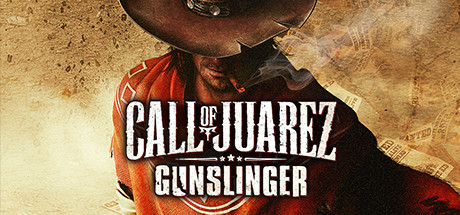
Long live mid-budget games! This is the sort of game I’d love to see more like in today’s market Not only does it have fun, arcade-y shooting in a western setting, but the way it tells its story is delightful. The story that the player experiences is explicitly a story being told around the table at a saloon – complete with detours, mis-remembered details, and on-the-fly corrections to what “really happened”. It’s incredibly charming and demonstrates a mode of story in games that I would love to see explored more.
myhouse.pk3 (2023) [PC]
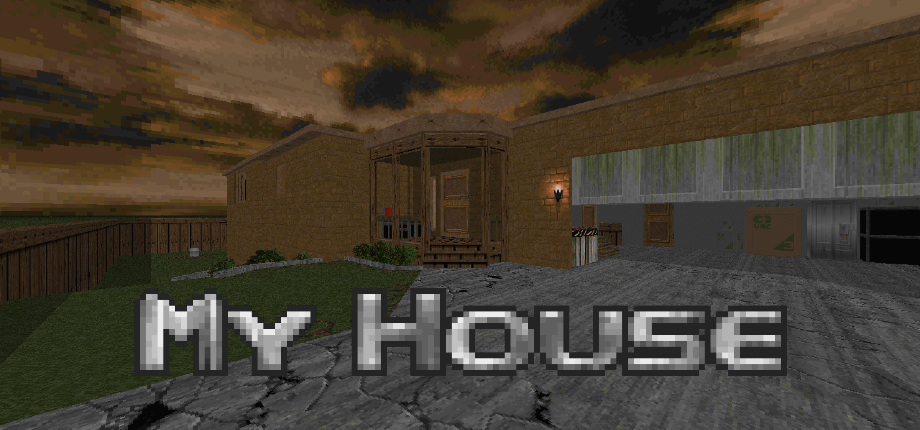
Without a doubt, this is the coolest game(?) I played all year. On the surface, it’s a pretty typical Doom II map that recreates the modder’s house. Poke a little more at it, and it opens into a sprawling web of secrets, tricks, branching paths, and more. It’s clearly a love letter to the Doom mapping community with its references and homages, borrowed monsters from early mods, and more. In addition, for those not super familiar with Doom mapping, it is a technical marvel and a true feat of what skilled modders can do with modern Doom source ports. I was honestly a bit obsessed with exploring myhouse when I first discovered it, to the point that I actually had at least one dream about it! Few gaming experiences have had that affect on me, and it’s a testament to myhouse’s greatness.
Super Mario Sunshine (2002, 3D All-Stars Version) [NS]

Boy this was an odd one. In an almost complete departure from 64, Nintendo moved everything to a new location and focused the game around a backpack squirt gun. It’s not an awful idea, but it’s an odd fit for a Mario game if you ask me. I don’t think I ever really had a lot of fun with this one. And the segments where you are FLUDD-less are surprisingly challenging. And really weird in a game otherwise all about FLUDD. I think the only part of this I really liked was the art style. Everything else just felt… off.
Clone Drone in the Danger Zone (2017) [PC]
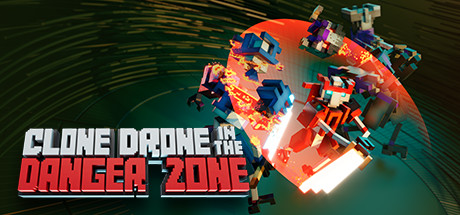
This was a recommendation from a friend of mine that I really enjoyed. It’s a hack-and-slash robot voxel-y treat. It’s not got a huge budget or grand ambitions, but the core gameplay is a load of fun. OK, the story has some pretty grand ambitions. While the massive scale sci-fi story didn’t really land for me, I appreciate what they were going for. I still plan to hop into this one from time to time and try my hand at some of the challenges or the multiplayer.
Resident Evil 4 (2005) [PC]
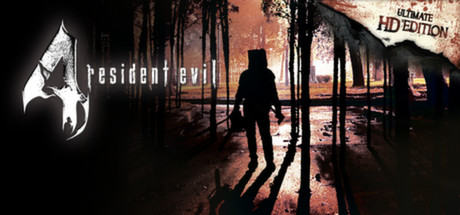
This was my first ever Resident Evil and I had a blast. It’s got a fun sort of campy action / horror tone. As I mentioned earlier, I’m a bit of a wuss when it comes to horror, so this lighter take was greatly appreciated. While the textures and tank controls clearly anchor it in time, it otherwise seems honestly fine (depending on your tolerance for some characters being major horndogs). While I was curious about the remake, I feel like this game didn’t need it due to running well, looking decent, and still being totally playable over a decade later.
Dear Esther: Landmark Edition (2017) [PC]
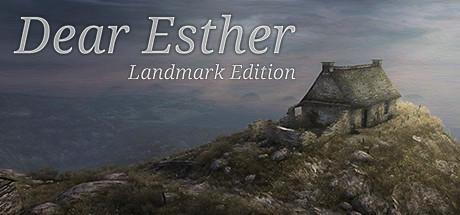
As I’ve mentioned in the past, I’m a sucker for interactive story and how games and stories affect each other. So when I noticed I had this in my library (perhaps from a Humble Bundle?), I decided to give it a go. Almost immediately, I realized that this was not something I was gonna enjoy. I’ve got no qualms with “walking simulators”, especially not when they have some truly beautiful environments to explore. But this just felt lesser than the sum of its parts. The story is largely narration triggered when reaching different areas, and apparently has some element of randomness to what clips are played during a run. That’s something that requires a lot of care and attention to detail to do well. This did not do it well. The story feels disjointed, the prose overly purple, and the conclusion nonexistent. It only runs around two hours, but even with that in mind I didn’t want to give it a second playthrough.
Dark Messiah of Might and Magic (2017) [PC]
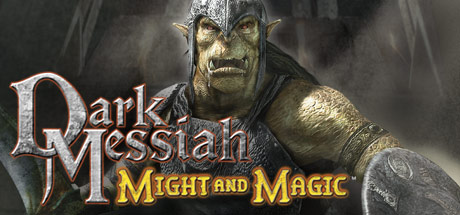
While I dig the style of Arkane’s Dishonored series, I only truly fell in love with their games with Prey (2017). I’d heard that this game was a totally different style for them – action with light RPG elements – and I was interested in seeing what that was like. PLus, I was also curious due to this being one of the few early non-Valve Source engine games (shout out to VTM: Bloodlines for coming out before even Half-Life 2). This game was overall a blast. It’s got a silly story in the Might & Magic universe (which I know little about), but the core gameplay is just pure fun. I stand by my belief that games with a dedicated kick button are some of the best. When you combine that with early Source’s goofy (Havok?) physics, and a bunch of combat arenas built for it, you’re bound to have a good time. 10/10. Would kick baddies into conveniently-placed spike walls again.
Marvel’s Avengers (2020-23) [PS4/PC]

I sure wish this wasn’t designed as a live-service loot-centric game. The story and combat are serviceable. I actually really enjoyed how different characters all had different play styles. But the stuff around the story and gameplay just make it all feel like a terrible slog. Plus, the loot upgrades are very confusing from an in-universe perspective. Hulk is out here increasing in strength with nanite spines or whatever he pulls out of AIM caches? Bizarre. If this game were more of a Left 4 Dead style co-op game, it would have been far better. Instead, it was burdened with systems that are a terrible fit for the world and characters. Talk about a bummer.
Rayman Legends (2013) [PC]
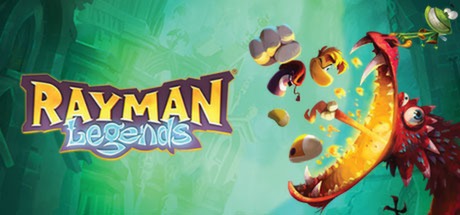
Rayman Origins was an absolute joy, and one of the few games I wanted to 100%. Unfortunately, the 3DS version was the only one I had, and it has a bug that made it actually impossible to do that. Flash forward several years, and I’m ready for another modern Rayman. This time, playing on PC. Rayman Legends is an interesting sort-of sequel in that it’s kind of also trying to include all the stuff from Origins. A bit like Left 4 Dead 2 in that way. The main (new) campaign is decent, and the musical boss levels are a delight. However, this one has some really strange “daily quest” / collectables / leaderboard hooks to try and be a game people continuously play strictly for unlockables. That all feels kind of gross and completely unnecessary for what is already a really fun game. It honestly soured me a bit on things and made me not want to 100% this one. I might not have even been able to, since the online stuff never worked for me when I tried it.
Ghost of Tsushima (2020) [PS4]
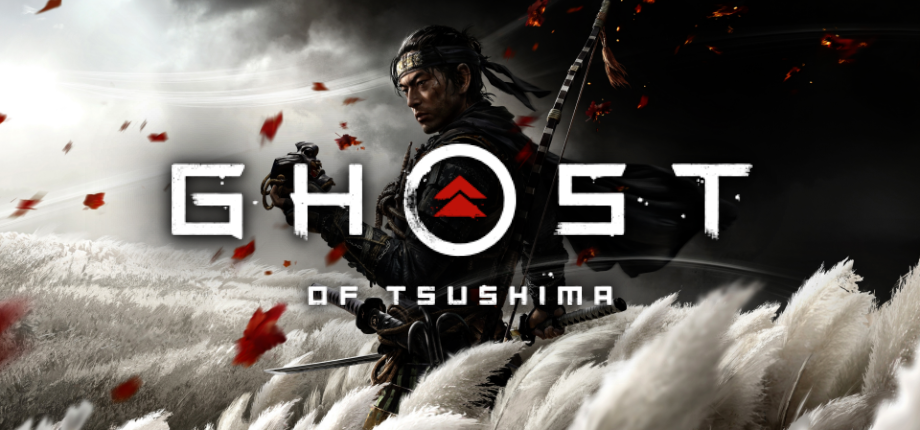
This came SO close to being a game I loved. It’s utterly gorgeous, both in terms of visuals and cutscene cinematography (which often lovingly cribs from Kurosawa movies). However, the open world design and need to collect and craft and do sidequests soured my experience of the game. Make no mistake, the gameplay is a lot of fun and I enjoy it. But something about being told “Go eliminate this many invading generals to get a new stance” feels so counter to the overall feeling of the game. I genuinely think I might have enjoyed this more if it weren’t open world. Some amount of that is my own being tired with the inescapable open world design trends. I just wish this game was bold enough to focus on its strengths and not what so many other games are doing.
Street Fighter 6: World Tour (2023) [PC]
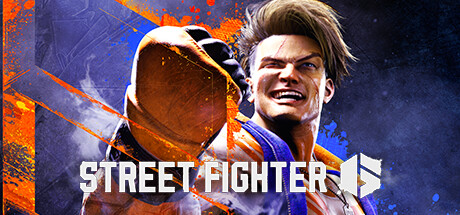
In terms of content available, this has got to be the best launch-day fighting game in the past decade. The World Tour mode is especially great, giving more casual players a space to play in and experiment with a variety of different moves borrowed from the many characters in SF6. The avatar building and moveset customizing are a treat and allow players to create wild combinations. The ability to explore the world of Street Fighter and interact with its many characters is a joy. Some of the text message conversations with the cast are among my favorite game writing of the year. It’s delightful to get a peek into this world and its characters in a way that’s more in depth than 90-second rounds. That said, I did eventually grow tired of World Tour’s exploration and progression as they fell into pretty typical open-world traps.
I can’t speak to much to the competitive side of the game as I’ve never been one to dedicate myself to a fighter so much, but I look forward to diving into that aspect now that I’ve found a local scene for the game.
Marvel’s Guardians of the Galaxy (2021) [PS4]
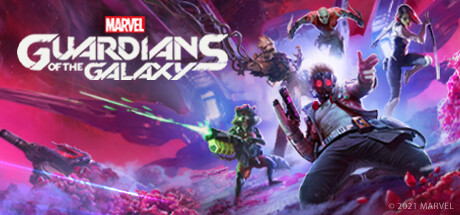
While I thought the character writing in SF6’s World Tour was terrific, this game raised that bar even higher. The format of a game is a much better fit for the ensemble cast than any movie. Game stories are able to take advantage of the breathing room the longer runtime allows, and Guardians of the Galaxy did it perfectly. The world-building and fun sci-fi concepts didn’t let me down either. This was a delight through and through. My only complaint is that the actual combat is only meh at best. Hopefully the team can create a follow-up that builds on the strengths of this one.
Also, bonus points for being the sort of game Avengers should have been. Had this fallen into the live-service game trap it would have been a disaster. Still, I bet that game made more money.
Tetris Effect Connected: The Journey (2018) [PC]

I consider myself to be a pretty big Tetris fan, but I still somehow managed to miss out on Tetris Effect for a number of years. I think a part of me felt it looked gaudy and overly complicated. Tetris is at its core a pretty simple game, so who needed all this crud around it? After finishing its story mode (“The Journey”), I can’t say I’m totally sold on Tetris Effect. But it sure can be pretty. I’m a sucker for reactive visuals and music, and this game has scads of both. The only problem is that they can be difficult to enjoy if you’re trying to focus on the blocks. In fact, they can be downright distracting at times. I know several folks who felt they were overwhelming and made the game unfun, but I enjoyed the challenge of learning to tune out the “noise” and focus on the puzzling. My local FGC scene does head-to-head puzzlers from time to time, and this is their current Tetris go-to. So I’m certain I’ll be revisting this frequently.
Death Stranding (2019) [PC]
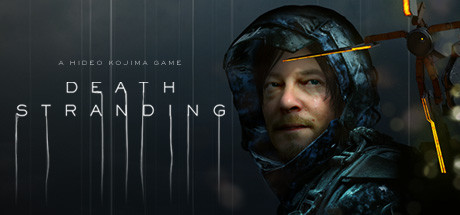
It’s some coincidence how both of the final two games I beat this year include prominent themes of connectedness. Tetris Effect and Death Stranding both care deeply about how humans interact both with each other and with the world around them. Tetris Effect just so happens to be a bit more subtle about it (assuming you somehow miss the lyrics of the title track repeating “It’s all connected”).
Death Stranding is something remarkable. A deeply weird story and gameplay like no other big budget game I’ve played (outside of the sparse combat sequences) make for something really memorable. The vast majority of the time spent playing the game is spent hiking throughout the US, plotting routes and carefully lugging cargo over a variety of terrain. I honestly love that the game dedicates so much of its time and resources to what largely amounts to “just” hiking. And in any other game, that movement from place to place is the boring part, the lull between the action. But here it is deliberate and requires thought and attention to avoid mishaps. It’s honestly really refreshing.
Story-wise, I love Death Stranding from a big-picture perspective. It’s wild and weird sci-fi in the best way. The way it pulls together a wide amount of disparate concepts from both science and mythology reminds me of my own interests and countless hours perusing Wikipedia articles. In that way, I feel a sort of kinship with the writer(s). I’ll admit that the story does stumble with its details from time to time, but never in a way that put me off from the game entirely.
This game isn’t for everybody, but I can tell that for some folks it will have an enormous impact, myself included.